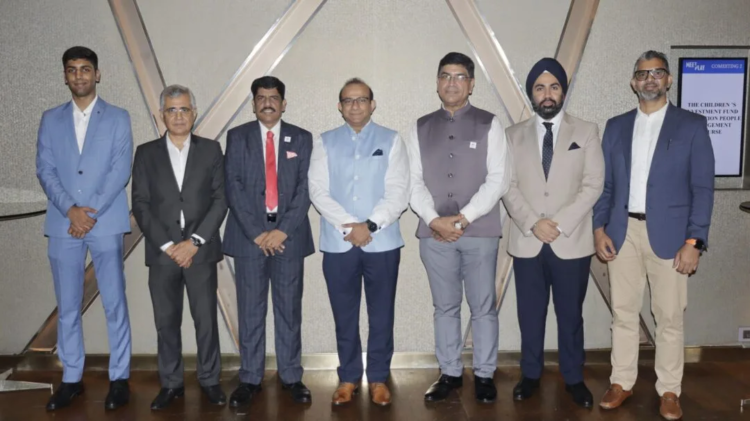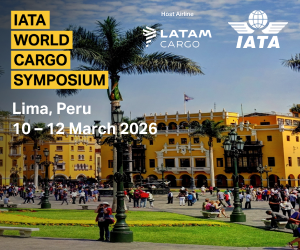India’s aspirations to become a global air cargo powerhouse took a definitive step forward with the Air Cargo Forum India (ACFI) unveiling its strategic vision during a high-level curtain raiser event on June 20, ahead of the ACFI Annual Conclave 2025. Themed “Air Cargo Leadership in a Changing World – India at the Forefront of Global Transformation,” the event underlined a shift toward policy-driven, tech-enabled, and sustainability-led logistics growth.
Set to be held on July 11 at the Taj Palace, New Delhi, the upcoming Conclave is expected to serve as a policy incubator and industry-government engagement platform to address India’s evolving role in global supply chains. With annual air cargo volumes projected to surpass 10 million tonnes by 2030, the stakes are high for systemic reform in infrastructure, regulatory compliance, and digital logistics architecture.
From Ground Handling to Global Strategy: A New Institutional Mindset
Opening the event, ACFI President and CEO of GMR Cargo & Logistics, Sanjiv Edward, made a compelling call to reposition India from a passive player to a proactive architect of air cargo transformation.
“India is no longer a peripheral actor in global logistics. We are poised to become a central force in reshaping air cargo dynamics. Achieving that requires a fundamentally new approach—rooted in digitisation, sustainability, and secure operations,” Edward said.
His remarks reflect a strategic pivot from transaction-based operations toward a future-ready, ecosystem-driven model, closely aligned with the National Logistics Policy and the PM Gati Shakti master plan. The emphasis now lies on building interoperable systems, adopting global standards, and embedding resilience and foresight into air cargo infrastructure.
Tech Arena and Compliance as Cornerstones
A highlight of the curtain raiser was the launch of the ACFI Tech Arena, which showcased innovations in AI, IoT, warehouse automation, and sustainable logistics. This initiative positions technology as a core enabler rather than a peripheral function, reinforcing India’s commitment to competitive, digital-first air cargo ecosystems.
Given India’s 38th rank on the World Bank’s Logistics Performance Index (2023), alignment with global standards such as IATA’s ONE Record and the e-AWB framework was underscored as critical to enhancing shipment visibility, reducing customs clearance times, and improving reliability across value chains.
Key Policy Sessions to Define the Future Landscape
The Conclave will feature four high-level thematic sessions, each addressing pivotal dimensions of India’s cargo future:
1. From Turbulence to Triumph: India’s Air Cargo in a New World Order
Substituting for Air India’s Ramesh Mamidala, Satish Lakkaraju highlighted India’s need to recalibrate its air freight strategy amid global realignments. He advocated for the development of aviation corridors aligned with geopolitical initiatives like the India-Middle East-Europe Economic Corridor (IMEC) and India–Central Asia air trade routes.
2. Tech-Driven Cargo: Accelerating Express, E-commerce & Data-Led Logistics
With e-commerce driving exponential growth, Lakkaraju called for interoperability between public logistics platforms such as ULIP and private sector systems. He proposed incentives for predictive analytics, real-time tracking, and the standardisation of Cargo Community Systems (CCS) across Indian airports.
3. Green Corridors & Sustainable Trade Lanes: Air Cargo’s ESG Agenda
Moderated by Keku Bomi Gazder, MD & CEO of Aviapro Logistics, this session spotlighted the critical ESG transition. Gazder pressed for policy direction on Sustainable Aviation Fuel (SAF), emissions monitoring, and carbon offsetting. These inputs are expected to inform draft regulations and align with ICAO’s Long-Term Aspirational Goals (LTAG).
4. Securing India’s Cargo Future: Compliance, Risk & Resilience
Also led by Gazder, this session delved into regulatory preparedness, especially in light of rising cargo volumes involving dual-use goods and sensitive shipments. He emphasised the need for modular infrastructure, real-time risk analytics, and end-to-end traceability as baseline requirements in the new operating environment.
“Resilience must be embedded by design—not as an afterthought. This is crucial as India expands its presence in high-value global logistics like pharmaceuticals and defence,” Gazder noted.
Industry Alignment and Regional Stakeholder Engagement
Cathay Cargo was announced as the Title Sponsor, a move that signals strong regional interest in India’s emerging air cargo ecosystem. The airline’s participation highlights the growing alignment between Indian infrastructure and Asia-Pacific carriers seeking India-origin volumes, particularly from tier-2 industrial cities.
Dhiren Lakkaraju, Vice Chairman of ACFI, stressed the importance of policy harmonisation and ecosystem-wide collaboration.
“India’s cargo growth will not be driven by isolated policy interventions. We must build a collective, synchronised approach to unlock real value,” he said.
Looking Ahead: Policy Outcomes and Global Expectations
The Conclave comes at a time of rising global attention on India’s logistics trajectory. With international forums such as WTO, ICAO, and UNCTAD focusing on trade facilitation and digital enablement, India’s air cargo policy is under increased scrutiny.
Expected outcomes from the Conclave include:
- White papers and policy briefs on digitisation and SAF integration
- Recommendations on ESG-linked investment norms
- Strategic guidance on freight rate stabilisation, multimodal integration, and cargo-focused SEZs under Gati Shakti
A Critical Inflection Point for Indian Air Cargo
The ACFI Annual Conclave 2025 is more than a sectoral gathering—it is a strategic fulcrum for India’s transformation into a globally competitive air cargo hub. The convergence of policy, technology, sustainability, and security frameworks marks a deliberate move toward a future-proofed cargo ecosystem.
For global air freight leaders, regulators, and logistics investors, India’s emerging model could serve as a template for resilient and adaptive air cargo development in a fragmented and fast-changing world economy.





